How to become a lacrosse referee. What are the main duties of a lacrosse official. Where to find lacrosse referee jobs near you. How to advance your career as a lacrosse referee.
The Role and Responsibilities of a Lacrosse Referee
Lacrosse referees play a crucial role in maintaining fair play and enforcing the rules during lacrosse games. Their primary responsibilities include:
- Inspecting the field, nets, and player equipment before games
- Initiating play with faceoffs and restarts
- Calling penalties, fouls, offsides, and out-of-bounds
- Signaling goal calls to the scorekeeper
- Managing player and coach conduct, including ejections when necessary
- Ensuring smooth game flow and resolving on-field disputes
Effective lacrosse referees must possess excellent communication skills, as they constantly interact with players, coaches, officials, and spectators throughout the game. They need to project confidence in their decisions while maintaining order and safety on the field.

Qualifications and Certification Process for Lacrosse Referees
To become a lacrosse referee, individuals must meet certain qualifications and complete a certification process. The basic requirements include:
- Being at least 18 years old
- Having extensive knowledge of lacrosse rules and gameplay strategies
- Possessing 1-2 years of playing experience at the high school level or above
- Maintaining physical fitness to keep up with the game’s fast pace
The certification process typically involves the following steps:
- Completing a certification course covering rules, mechanics, and on-field positioning
- Passing a certification exam
- Registering with a local officials organization to receive game assignments
- Attending regular training sessions to stay updated on rule changes and refine skills
Are you wondering where to find certification courses? Many local lacrosse referee associations offer training programs and clinics. Additionally, online courses are available through the National Federation of State High School Associations (NFHS) for certification purposes.

Finding Lacrosse Referee Jobs in Your Area
Once certified, aspiring lacrosse referees may wonder how to find job opportunities. Here are some effective strategies for locating referee positions:
- Check job listings on official boards for local lacrosse leagues and associations
- Network with experienced referees to learn about unpublished opportunities
- Browse regional lacrosse message boards and social media groups
- Search community center and park district websites
- Inquire with area coaches, schools, and youth sports programs about openings
- Attend local lacrosse events to connect with organizers and distribute business cards
When is the best time to look for lacrosse referee jobs? The peak seasons are typically spring and summer when most youth and school leagues are active. However, opportunities may also arise for indoor lacrosse leagues and tournaments during winter months.
Career Advancement Opportunities for Lacrosse Referees
As lacrosse referees gain experience and expertise, they can advance their careers in several ways:

Earning Potential
New lacrosse referees can expect to earn $30-50 per game, depending on the level of play. With experience and skill development, referees can potentially earn $70-100 or more per game at higher divisions.
Advancing to Higher Levels
Experienced referees may have opportunities to officiate:
- Collegiate summer leagues
- Regional tournaments
- Division I college conferences
- Major national tournaments
Leadership Roles
Some referees transition into officiating leadership positions, such as:
- Training and mentoring new referees
- Serving on referee association boards
- Developing referee education programs
How can referees improve their chances of advancement? Focus on consistently making correct calls, maintaining top physical condition, and demonstrating professionalism on the field. Seeking mentorship from veteran referees and requesting constructive feedback after games can also contribute to professional growth.
Benefits of Becoming a Lacrosse Referee
Becoming a lacrosse referee offers numerous benefits beyond monetary compensation:

- Staying physically active and engaged in the sport
- Free entry to exciting lacrosse games
- Joining a close-knit officiating community
- Developing valuable life skills such as decision-making and conflict resolution
- Potential for travel opportunities to officiate tournaments
Can refereeing lacrosse be a viable side hustle? Absolutely! With flexible scheduling and the potential for increased earnings as you gain experience, lacrosse refereeing can be an excellent way to supplement your income while staying involved in a sport you love.
Essential Skills for Success as a Lacrosse Referee
To excel as a lacrosse referee, individuals should focus on developing the following skills:
Rule Knowledge
A comprehensive understanding of lacrosse rules and their application is crucial. Referees must stay updated on rule changes and interpretations to make accurate calls during games.
Physical Fitness
Lacrosse is a fast-paced sport, and referees need to keep up with the action. Maintaining good cardiovascular fitness and agility is essential for effective officiating.

Communication
Clear and effective communication with players, coaches, and other officials is vital. Referees must be able to explain their decisions confidently and manage on-field interactions professionally.
Decision-Making
Quick and accurate decision-making is a hallmark of successful referees. The ability to assess situations rapidly and make fair judgments is crucial for maintaining the integrity of the game.
Emotional Intelligence
Referees must remain calm and composed, even in high-pressure situations. Managing emotions and defusing conflicts are important aspects of the job.
How can aspiring referees develop these skills? Regular practice, attending referee clinics, studying game footage, and seeking feedback from experienced officials are all effective ways to hone these essential abilities.
Challenges and Rewards of Lacrosse Refereeing
Like any profession, lacrosse refereeing comes with its own set of challenges and rewards:
Challenges
- Dealing with criticism from players, coaches, and spectators
- Managing high-pressure situations and making split-second decisions
- Staying physically fit to keep up with the game’s demands
- Balancing refereeing commitments with other personal and professional obligations
Rewards
- Personal satisfaction from contributing to the sport’s integrity
- Opportunities for personal growth and skill development
- Building a network within the lacrosse community
- Potential for career advancement and increased earning potential
Is lacrosse refereeing right for everyone? While it can be a rewarding experience, it requires dedication, thick skin, and a genuine passion for the sport. Those who thrive on challenge and enjoy being in the heart of the action often find refereeing to be a fulfilling pursuit.

The Future of Lacrosse Refereeing
As lacrosse continues to grow in popularity, the demand for qualified referees is likely to increase. Several trends are shaping the future of lacrosse officiating:
Technology Integration
The use of video review and other technological aids is becoming more common in higher-level games, requiring referees to adapt to new tools and procedures.
Emphasis on Player Safety
With growing concerns about concussions and other injuries, referees play an increasingly important role in enforcing rules designed to protect players.
Diversification of the Referee Pool
Efforts are being made to recruit a more diverse group of referees, including women and individuals from underrepresented communities, to better reflect the changing demographics of lacrosse players.
Professionalization
As lacrosse grows at the professional level, opportunities for full-time refereeing careers may expand, potentially leading to increased training and performance standards.
What does this mean for aspiring lacrosse referees? Those entering the field should be prepared to embrace ongoing learning and adaptability. Staying informed about emerging trends and being open to new approaches will be key to long-term success in this evolving profession.
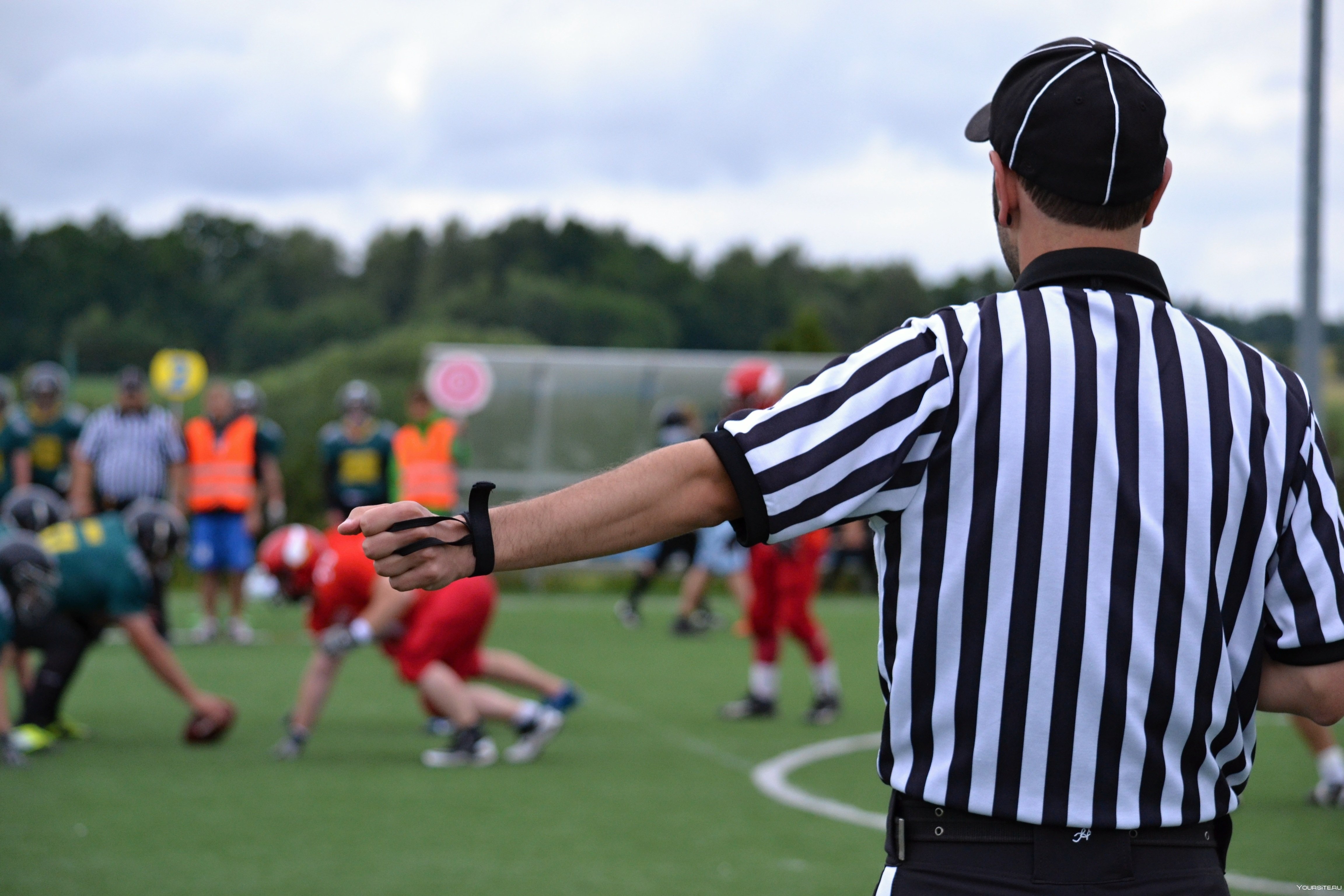
In conclusion, becoming a lacrosse referee offers a unique opportunity to stay involved in the sport while developing valuable skills and potentially earning a supplemental income. With the right training, dedication, and passion for the game, referees can progress from officiating youth matches to overseeing competitive playoffs and championships. Whether you’re looking for a rewarding side hustle or considering a long-term career in sports officiating, lacrosse refereeing provides an exciting and challenging path forward.
What does a lacrosse referee do?
Hey friends, are you looking for an exciting side hustle that gets you outside on the field? Becoming a lacrosse referee may be perfect for you! I recently went through the process of getting certified and landing my first ref gigs, and let me tell you, it has been an absolute blast.
As a lacrosse referee, your main job is to enforce the rules and maintain fair play during games. This means you’ll need to have a strong understanding of the sport’s regulations and be able to make quick, accurate calls. Some of the key responsibilities include:
- Inspecting the field, nets, and player equipment before each game
- Throwing up the ball during faceoffs and restarts
- Calling penalties, fouls, offsides, and out of bounds
- Signaling goal calls to the scorekeeper
- Ejecting unruly players or coaches when necessary
- Keeping the game running smoothly and intervening in on-field scuffles
As the authority on the field, you’ll need to project confidence in your calls, while also maintaining order and safety. Top-notch communication skills are a must, as you’ll be constantly interacting with players, coaches, other officials, and fans throughout the game.
Becoming an Official Referee

To become a lacrosse referee, you’ll need to meet some basic qualifications and go through training. Here’s a quick rundown of the process:
First, you must be at least 18 years old and have extensive knowledge of lacrosse rules and gameplay strategies. Most leagues require 1-2 years of playing experience at the high school level or above. Being physically fit enough to keep up with the fast pace of the game is also important.
Next, you’ll complete a certification course that covers rules, mechanics, and positioning on the field. Many local lacrosse referee associations offer training programs and clinics. You can also complete online courses through the National Federation of State High School Associations (NFHS) to get certified.
After passing your certification exam, you’ll need to register with a local officials organization to start getting game assignments. Expect to ref scrimmages, youth leagues, and lower-level games as you gain experience. Consistently making good calls will help you progress to reffing older, more competitive divisions.
Throughout your career, you’ll need to attend regular training sessions to keep your skills sharp. The rules and strategies of lacrosse are constantly evolving, so staying up-to-date on the latest developments is key.
Finding Referee Jobs Near Me

Wondering where to find lacrosse referee jobs in your area? Here are some tips:
- Check listings on official job boards for local lacrosse leagues and associations
- Network with other referees to learn about unposted opportunities
- Browse regional lacrosse message boards and Facebook groups
- Search community center and park district websites
- Ask area coaches, schools, and youth sports programs about openings
- Attend local lacrosse events to connect with organizers and hand out business cards
Peak seasons for lacrosse ref jobs are the spring and summer, when most youth and school leagues are actively playing. But you may be able to find work reffing indoor lacrosse leagues and tournaments during the winter months too.
Once you have a few seasons of experience under your belt, you can even pursue opportunities reffing collegiate summer leagues, regional tournaments, and other higher-level competitions.
Advancing as a Lacrosse Referee
Starting out as a new lacrosse ref, you can expect to make $30-50 per game, depending on the level. But as you gain skills and experience, you have the potential to earn $70-100 per game or more at higher divisions. Other perks include getting free entry to exciting games, staying physically active, and joining a close-knit officiating community.
To advance up the officiating ladder, focus on consistently making correct calls, staying in top physical condition, and maintaining professionalism on the field. Seek mentorship from veteran referees, and ask for constructive feedback after games to improve. Earning a reputation as a fair, controlled, and knowledgeable ref will help you progress.
Some experienced lacrosse referees even go on to work for Division I college conferences or get assigned to major regional and national tournaments. There’s also the possibility of moving into officiating leadership roles to help train and mentor newer refs.
So if you’re passionate about lacrosse and want to turn the sport into a rewarding side job, becoming a referee is a great option. With the right training and dedication, you can go from working youth games to reffing competitive playoffs and championships. Get out on the field and see where this exciting officiating journey takes you!
Lacrosse referee requirements and qualifications

If you’re pumped up to start a rewarding side hustle as a lacrosse referee, here’s a deeper look at the requirements and qualifications you’ll need to be successful on the job:
First off, a passion for lacrosse is a must. You’ll need to fully understand the fast-paced gameplay, rules, positions, and strategies to keep up with the action and make the right calls. While 1-2 years of playing experience is recommended, even just being an avid fan can give you the knowledge foundation you need.
In terms of physical fitness, lacrosse referees are constantly on the move during games. You’ll be running up and down the field keeping pace with lightning-quick athletes for up to 60 minutes straight. Top cardiovascular endurance is a job requirement, as you cannot lag behind the players. Leg strength for sprinting and core strength for those long games are also vital.
Because you’re the authority figure on the field, strong leadership skills are essential. As a ref, you’ll need to project confidence in your calls, calmly stand your ground if contested, and take control of heated situations should they arise. While defusing potential conflicts, you must remain professional and composed at all times.
Excellent communication is also key. You’ll need to interact clearly with players, coaches, other officials, and the scorekeeper throughout games. Using proper signals, voice commands, and body language to convey your calls is critical. And providing swift, reasoned explanations for controversial calls can help diffuse tension.
Focus and concentration are must-have mental attributes. Like the players, your head needs to be completely in the game at all times so you don’t miss critical plays and penalties. The ability to tune out distractions and stay laser-focused under pressure is hugely important.
Just as crucial is quick and accurate decision-making. Split-second judgment calls are part of a lacrosse ref’s job description. You’ll need sharp instincts to instantly recognize infractions and make the right call as the action unfolds. Confidently owning your decisions helps cement your authority on the field.
A thick skin also comes in handy as a lacrosse official. Dealing with frustrated players and coaches is inevitable, and you’ll need to let criticism roll off your back. But being approachable and communicating respectfully can help minimize contentious interactions.
And don’t forget, lacrosse referees need to look the part too! You’ll need to invest in the proper referee uniform and equipment like striped jerseys, hats, whistles, penalty flags, and crew socks. Looking professional is important for establishing your legitimacy on the field.
While the requirements are demanding, they ultimately make lacrosse refereeing a challenging yet extremely rewarding side job. If you’ve got athletic ability, mental toughness, a passion for the sport, and the drive to succeed, you have what it takes to thrive as a lacrosse official!
How to become an official lacrosse referee

Ready to step onto the field and start reffing? Here’s a play-by-play guide to becoming an official lacrosse referee:
Your training starts with studying the NFHS (National Federation of State High School Associations) rule book front to back. Memorizing all the rules, penalties, and protocols is crucial for passing the certification exam. Attend seminars and clinics run by local referee associations to review the rules in-depth.
Next, enroll in an online or in-person lacrosse officiating certification course. These comprehensive classes will teach you proper mechanics and positioning, how to carry yourself as an authority on the field, making calls, and more. Be ready for written and physical fitness tests.
Once certified, you’ll need to register with a local lacrosse officials organization, like the Central Indiana Lacrosse Officials Association (CILOA) or New England Women’s Lacrosse Officials (NEWLUO). These groups will connect you with leagues seeking referees for games in your area.
Plan to start building experience at the youth and junior varsity high school levels. As a new ref, you’ll need to get plenty of game reps in before moving up to varsity and advanced divisions. Don’t be afraid to ask veteran officials for tips!
Make sure to attend pre-season training sessions run by your local organization each year. These provide a refresher on new rules and a chance to brush up on mechanics before the craziness of the season hits.
Throughout the season, continually hone your skills by reviewing game footage and receiving feedback from observer programs. Don’t be discouraged by mistakes early on – learning from them will help you improve.
Above all, carry yourself as a professional at all times. From arriving early to games to maintaining composure during heated interactions, conducting yourself with maturity is key. This earns you respect on the field.
With consistent training, confidence in your calls, fitness to keep up with the pace of play, and professionalism, you’ll be equipped to handle refereeing higher stakes varsity, conference, and playoff matchups.
After building substantial experience, some lacrosse refs go on to officiate collegiate summer leagues, U15 national tournaments, and other elite competitions. But no matter what level you reach, embrace the journey of lifelong learning on the field!
Finding lacrosse referee jobs near me
So you want to become a lacrosse referee? Great idea! Officiating lacrosse games can be an exciting and rewarding experience. But finding consistent ref jobs near you can take some effort. Let’s break down the key steps to landing those coveted lacrosse officiating gigs in your local area.
First things first – get certified. You’ll need to be officially certified by a lacrosse officials organization to ref most games. The two main ones are US Lacrosse and the IWLCA (Intercollegiate Women’s Lacrosse Coaches Association). US Lacrosse offers certification clinics across the country, teaching you the rules, mechanics, and skills to be a lacrosse official. The IWLCA certification is focused on women’s college lacrosse. Going through the certification process shows leagues and teams that you’re serious about officiating.
Now it’s time to start making connections. Reach out to local youth lacrosse leagues, high school athletic directors, and college coaches to let them know you’re a certified official looking for games. Don’t be afraid to toot your own horn a bit about your lacrosse background as an athlete or coach. Also ask other referees in your area if they need help covering any games or if they have leads on teams hiring new refs.
It also helps to get involved with local lacrosse referee associations. These groups assign officials to youth, high school, and sometimes college games in the region. Attend association meetings, get to know the assigners, and tell them you’re eager to get games. The more face time you have with these decision makers, the more likely you are to get assignments.
Building experience is key when you’re just starting out. Be willing to officiate any game you can, even if it’s low level or far away. You need reps to improve as a ref and make connections. Ask club teams, youth tournaments, or rec leagues if they need officials. Also consider reffing boys’ games to get experience if the girls’ opportunities are limited in your area.
As you build your officiating resume, focus on providing solid game management as a ref. Making the right calls is obviously huge, but teams also notice if you professionally handle disputes, control the pace of play, and maintain order on the field with fair but firm enforcement of the rules. These intangibles will get you noticed and respected.
Make sure to market yourself to other refs and local lacrosse organizations too. Keep your lacrosse referee certification current and list yourself on official databases that teams use to find officials. Also create fliers with your contact info, experience level, and availability and pass them out to area coaches, leagues, and refs.
Social media can also be leveraged in your referee job search. Follow local lacrosse programs and introduce yourself on their team Facebook page or tweet at their coach offering your services. You can even create a lacrosse referee business page to promote your services in the community.
Finding lacrosse ref jobs near you does take consistent effort, but the payoff is getting paid to be part of the sport you love. As you build your reputation as a skilled, professional referee, you’ll soon have coaches and leagues seeking you out for their games. Stay visible and keep hustling for those officiating opportunities in your area. With dedication to mastering the craft, you’ll be reffing competitive lacrosse at the highest levels in no time.
Here are some final tips for landing the lacrosse ref jobs you want:
- Get certified by a major officiating organization like US Lacrosse
- Network constantly – reach out to leagues, athletic directors, coaches
- Join local referee associations to get game assignments
- Take any game you can to build experience
- Focus on professionalism and managing games effectively
- Market yourself to local lacrosse community
- Leverage social media to promote your refereeing
- Stay persistent and keep hustling for games
With the right skills and tireless pursuit of officiating opportunities, you’ll be reffing top-level lacrosse games in your area soon. So get out there and start landing those coveted lacrosse referee jobs near you today!
Applying for lacrosse referee positions

Looking to step onto the field as an official lacrosse referee? Awesome! Let’s break down the key tips for applying for lacrosse ref jobs and landing your first gig.
First up, get the proper certifications. Depending on what level you want to officiate, you’ll need certification from organizations like US Lacrosse or the IWLCA. The certification clinics teach you the intricacies of lacrosse rules, mechanics, and field positioning so you’ll be ready to make the right calls.
Next, put together a stellar resume. Highlight your lacrosse experience as a player or coach. List any prior refereeing experience in other sports. Note your certifications and any trainings completed. And include skills like communication, integrity, and ability to perform under pressure – critical for effective officiating.
When applying for a lacrosse referee job opening, customize your cover letter and tie your experiences directly to the role. Explain why you’re passionate about lacrosse officiating and how you’ll help manage smooth, fair games. Provide examples of situations that show your officiating abilities in action.
Along with your resume and cover letter, some lacrosse leagues and tournaments may require writing sample essays on rules scenarios or taking a rules exam. Use your lacrosse officiating training to ace these assessments.
It also helps to put together a professional looking lacrosse referee website, Facebook page, or online portfolio. This gives leagues an easy way to learn about your background and experience at a glance when considering you for games.
When you land an interview for a lacrosse ref opening, come prepared to showcase your knowledge. Brush up on trickier rules like possession, goalie interference, and advantage flag. Expect to be quizzed on mechanics like hand signals, boundaries, and how to properly enforce penalties.
During the interview, highlight your commitment to integrity and safety as an official. Provide examples of how you maintained order in past games while being approachable to players and coaches. Stress your dedication to ongoing lacrosse referee training to keep your skills sharp.
When asked about compensation requirements, provide a fair rate based on your experience level and the time commitment involved. Be open to negotiating price – getting games under your belt is valuable.
Following up after applying for lacrosse refereeing jobs is also key. Send thank you notes after interviews reaffirming your interest and qualifications. Check in periodically if you haven’t heard back on an application yet to restate your enthusiasm.
It also helps to connect with local lacrosse ref associations and other officials in your area. Get guidance on the best leagues to target for early career refereeing opportunities. Experienced refs can serve as mentors and provide you leads on unposted openings.
Don’t get discouraged if your early lacrosse referee job applications aren’t successful. Keep honing your skills through local clinics, seek feedback on your resume and interview presence, and keep networking in the lacrosse community. Persistence and continual improvement will pay off.
With the right prep, persistence, and passion for officiating the game you love, you’ll be gearing up with your whistle in no time. Stay focused on becoming the best lacrosse referee you can be, and the rewarding on-field assignments will follow. You’ve got this!
Here are some key tips for applying for lacrosse referee jobs:
- Get certified by major officiating organizations
- Tailor cover letters and highlight transferable skills
- Prepare for rules exams and assessments
- Build an online portfolio to showcase experience
- Perform well in interviews by demonstrating knowledge
- Emphasize commitment to integrity and training
- Be flexible on compensation when starting out
- Follow up consistently after applying
- Network with local refs for guidance and leads
- Keep sharpening your skills and keep applying
With dedication and perseverance, you’ll soon be reffing competitive lacrosse games at all levels. Get those applications in and get ready to step onto the field!
Preparing for your lacrosse referee interview

You’ve applied for an exciting lacrosse refereeing opportunity and now you’ve landed an interview! Awesome work. Now it’s go time to showcase your skills and land the gig. Proper preparation will help you ace the interview and step onto the field.
First, thoroughly research the lacrosse league, association, or tournament you’re interviewing with. Understand their level of play, rules, reputation, values, and why they need solid referees. This allows you to speak knowledgeably about how you’ll contribute.
Next, brush up on your knowledge of lacrosse officiating rules and mechanics. Expect to be quizzed on proper field positioning, foul calls, hand signals, penalty enforcement, and advantage flag implementation. Be ready to explain trickier rules like possession, interference, and off-ball infractions.
It also helps to review the lacrosse referee training manual and code of conduct from your certification program. Know the procedures and protocols for proper officiating so you can speak intelligently on how you’d manage game flow, disputes, safety issues, and off-field responsibilities.
As you prepare, think through some tough officiating scenarios you may face: how would you handle hostile coaches questioning your calls? What if a crucial ruling was unclear and you didn’t have a good vantage point? Having responses planned shows you’re ready to take on officiating challenges.
To really ace the interview, arrive prepared with thoughtful questions for the interviewer. Ask about their goals for referees, problem areas they want addressed, and how they help train and mentor new officials. This shows your genuine interest in the opportunity.
Now it’s time to practice! Set up mock interviews with other aspiring refs to hone your skills. Record yourself so you can review and improve your interview presence and responses. The more prepared you are, the more confident you’ll feel when it counts.
Pick out your referee interview outfit well in advance. You want to convey professionalism with neatly pressed slacks, polished shoes, and a collared shirt and tie. Use minimal accessories and go light on fragrances – you don’t want to distract from the conversation.
Before heading to the interview site, make sure you have all the necessary documentation ready: certification cards, your lacrosse resume, references, paper and pen to take notes. Arrive at least 15 minutes early so you have time to settle in without feeling rushed.
When it’s time for the interview, start strong with a firm handshake, good eye contact, and enthusiastic greeting when meeting your interviewer. This makes a great first impression!
During the discussion, listen closely to each question before thoughtfully responding. It’s perfectly fine to take a moment to gather your thoughts. Provide specific examples of your abilities from past officiating, playing, or coaching whenever possible.
Make sure to smile and project energy and passion throughout the interview. Stress your commitment to integrity, safety, learning, and professionalism as a lacrosse official. Convey your dedication to the growth of the sport through fair and fun officiating.
Before wrapping up, be sure to ask about next steps in the hiring process and expected timeline for a decision. Express your strong interest in the position and appreciation for their consideration. And follow up soon after with a thank you for the interview opportunity.
With preparation, practice, and passion, your referee interview will be a breeze. You’ve got this! Remember these key tips:
- Research the league/tournament thoroughly
- Review officiating rules, mechanics, and scenarios
- Have thoughtful questions ready for interviewer
- Practice responses through mock interviews
- Arrive early with all materials ready
- Project confidence, energy and enthusiasm
- Provide examples that showcase your abilities
- Ask about next steps
- Follow up to reaffirm interest
Crush that interview, and we’ll see you out on the lacrosse field soon! Just remember your pre-game preparation.
Passing the lacrosse referee certification exam
To begin officiating lacrosse matches, you’ll need to pass a lacrosse referee certification exam. This comprehensive test evaluates your command of the rules, mechanics, procedures, and field positioning required for the job. With proper preparation and study skills, you can ace the exam and get ready to step onto the field.
First, thoroughly read the lacrosse officiating manual from front to back multiple times. This dense material can take a while to fully absorb. Make sure you understand definitions of key terms, have field diagrams memorized, and comprehend the nuances between similar infractions.
While studying, create quick summaries or flashcards of must-know rules like offsides, interference penalties, goal crease violations, and stick regulations. Constant repetition of this crucial content will commit it to memory. Having the confidence to make split-second rulings is vital for in-game success.
It also helps to watch lacrosse game footage and test your knowledge by making foul and violation calls. This simulates the real-time officiating environment. Ask more experienced referees to provide sample exam questions to practice with as well.
Be sure to master hand signals and field mechanics too. Know the precise motions for signaling penalties, out of bounds calls, possession direction, etc. Review proper referee positioning in various game situations and responsibilities during line changes, timeouts, and quarter breaks.
For trickier application of the rules, develop some mnemonic devices. For example, learning the specific sequence and responsibilities involved in a flag down situation. Come up with memorable acronyms to lock in the mechanics.
As the exam date nears, take practice tests under simulated conditions. Time yourself strictly and don’t use any reference materials – this prepares you for the real thing. Review any areas of weakness and spend more time drilling the information you struggled with.
In the final days leading up to the test, focus more on mental preparation than intense study. Get plenty of rest so you’re fresh and alert. Eat a good meal with protein to help you concentrate. And do some light exercise to reduce stress and clear your mind.
When exam day arrives, get to the testing site early so you aren’t rushed. Bring pencils, a non-digital watch to pace yourself, and a bottle of water. Also bring earplugs if the room might be noisy and distracting.
Listen carefully as instructions are given and ask clarifying questions if anything is unclear before you begin. Skim the entire test first to calibrate time per section and anticipate time-consuming problems.
When tackling questions, skip any that stump you at first and return later with fresh eyes. Eliminate clearly wrong answers first, then carefully weigh your remaining options.
Stay relaxed and don’t panic if confronted with unfamiliar scenario questions. Break them down into logical steps drawing upon your general knowledge of officiating mechanics and protocols.
With about 10 minutes left, check over all your responses for accuracy. Avoid overthinking – go with your gut if you’re wavering between two choices. Then take the last couple minutes to relax your mind before time is called.
After completing the exam, celebrate your hard work preparing! Reflect on areas that need more training focus for the future. And expect to feel some fatigue after the intense concentration required – be sure to recharge.
Here are some key strategies for lacrosse referee exam success:
- Study officiating manual extensively
- Make flashcards and summaries of key rules
- Watch game film and practice foul calls
- Master hand signals and field mechanics
- Develop mnemonics for memorization
- Take timed practice exams
- Prepare mind and body with rest
- Listen carefully to instructions
- Skip tricky questions initially
- Use logic for unusual scenarios
- Check over answers at end
With diligent preparation and a focused test-taking mentality, you’ve got this covered. Now go ace that exam and get ready to officiate some lacrosse!
Buying lacrosse referee equipment and uniforms

Once you’re a certified lacrosse official, it’s time to invest in the proper referee gear and uniforms. Having the right equipment enhances your professional appearance, safety, and performance on the field.
Let’s start with the standard referee uniform shirt. Opt for a black and white vertically striped shirt in moisture-wicking performance material. Brands like Honig’s and Smitty Official Ref offer shirts specifically designed for mobility and visibility.
You’ll also need referee pants, normally black leggings or shorts. Look for stretch fabrics with pockets to hold your whistle, flag, and other tools of the trade. Compression leggings prevent abrasion while shorts allow you to stay cool in hot weather.
A good pair of lacrosse referee shoes is critical. Prioritize lateral support, traction, and comfort. Many officials swear by athletic brands like Nike and Under Armour for durable, lightweight shoes that hold up on the field.
Don’t forget lacrosse-specific socks as well. Mid-calf striped socks maintain the classic referee look. Some brands like Elite Officials incorporate extra arch and ankle padding for support when running up and down the field.
Now for the vital gear you’ll rely on throughout the game. A Fox 40 finger grip whistle is the gold standard – it provides a loud, consistent tone to stop play instantly when needed.
You’ll also need yellow penalty flags – carry several in case you need to “toss a flag” to call simultaneous fouls. Weighted flags allow for accurate throws and stay put once on the ground.
A measuring tape allows you to accurately spot the ball and determine penalty yardage. Retractable keychain-style tapes conveniently clip onto your uniform. You may also want to carry backup shoelaces, whistles, or equipment bands.
Don’t forget critical protective gear. A cup provides essential protection from errant balls and checks. Lacrosse referee chest protectors are also available, though optional for many.
Gloves are another useful investment – they protect your hands and provide grip when handling the ball. Some officials opt for cold weather gloves as well for early season games.
To carry all your equipment, a lacrosse referee bag is essential. Look for a comfortable, customizable bag with plenty of pockets and space. Brands like Eagle and Score offer official-specific bags tailored to the gear you need.
It’s also important to have the right accessories to complete your professional look. A Fox 40 finger lanyard keeps your whistle easily accessible at all times.
Many lacrosse officials wear a watch to help keep the game moving on schedule. Durability, visibility, and stopwatch capability are key features for a good on-field watch.
You’ll also need cards to keep track of team penalties. Referee notebooks allow you to log detailed game notes to improve your performance.
Don’t forget eye black stickers to reduce glare and provide visibility of your eyes and expressions to interact effectively with players.
Finally, stay visible and hydrated on the field with referee hydration belts and hats. You may want extra cold weather gear for frigid early season games as well.
Here are some tips for equipping yourself as a lacrosse official:
- Invest in moisture-wicking uniform shirts and pants
- Get proper footwear for support and traction
- Get socks with padding for comfort and protection
- Carry a Fox 40 whistle, penalty flags, and tape measure
- Wear necessary protective gear like cups
- Get a bag to store and carry gear
- Use accessories like lanyards, watches, and eye black
- Stay hydrated and visible with belts and hats
With the right uniform, equipment, and accessories, you’ll look and perform like a pro out on the lacrosse field. So suit up and get ready to ref! Those critical game assignments are waiting for you.
Understanding lacrosse referee signals and mechanics

So you want to step onto the lacrosse field with a striped shirt and a whistle? Whether you’re a seasoned player looking to give back or someone who loves the game and wants to be part of it, becoming a lacrosse referee can be an incredibly rewarding experience. But before you get started, it’s important to understand the essential referee signals and mechanics that are crucial for controlling the flow of the game.
Lacrosse referees have a tough and often thankless job. The game moves lighting fast, and you have to make split-second judgment calls in real time. You’ll be confronted by irate coaches and overzealous parents. And yet, the integrity of the game depends on the officials properly enforcing the rules. It’s a big responsibility.
That’s why every lacrosse referee needs to thoroughly understand the approved hand signals and positioning prescribed by rule books like the NCAA Men’s Lacrosse Rules or US Lacrosse Women’s Game Officials Manual. Learning the hand signals may seem tedious at first, but they ensure clear communication between officials, players, and coaches. Proper mechanics like ball watching, box positioning, and transition coverage are equally vital for putting yourself in the best position to see infractions and maintain game control.
Mastering the lacrosse referee hand signals
Let’s start with the hand signals. There are over 30 approved hand signals covering everything from boundary violations to illegal body checking. Some signals are used in both men’s and women’s lacrosse, while others are sport-specific. Mnemonic devices can help. For example, the illegal procedure signal for a crease violation looks like a goalie’s net. Get creative and come up with memory aids that work for you. Draw the hand signals, watch training videos, and quiz yourself until they become second nature.
Here are some of the most common hand signals to know:
- Boundary violations -sweeping horizontal arm motion
- Crease violation aka goalkeeper interference – hands clasped together overhead
- Offside – single raised fist
- Loose ball push – pushing motion with both arms
- Illegal body check – clench fists and cross forearms
Once you’ve mastered the signals, practice calling fouls clearly and decisively with the proper voice inflection and gestures. Nothing confuses players and coaches more than an official making tentative or unsure calls.
Understanding referee mechanics and positioning
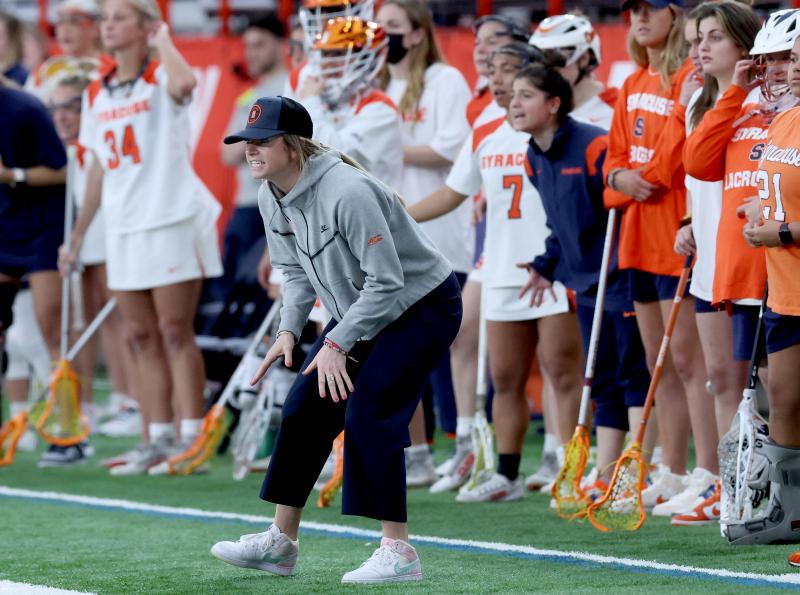
In addition to hand signals, lacrosse officials must learn proper mechanics like where to stand, how to transition up and down the field, and responsibilities in certain game situations. While hand signals are nearly identical across men’s and women’s lacrosse, mechanics can vary significantly between the two sports.
Here are some key positioning and mechanic tips:
- Lead official watches the ball, trail official primarily watches away from ball
- On faceoffs, Lead is down below restraining line, Trail above line
- Trail official covers end line on shot attempts
- Referees prepare for quick clear after a save and sprint up field with fast break
- On out-of-bounds calls, new Lead holds “hot stove” position with hand on outstretched hip
Proper positioning gives officials the best viewpoint of potential fouls while staying out of the players’ way. Referees work as a coordinated team, handing off responsibilities when transitioning up and down the field. For example, after a goal the new Trail official will first back up the play then sprint to get ahead of the action. Efficient mechanic execution contributes to game flow.
Game management as a lacrosse referee

Beyond signals and mechanics, controlling game flow and establishing a standard of enforcement are critical referee skills. Players and coaches will push boundaries, so officials must nip escalating physicality and dissent in the bud. Here are some game management tips:
- Set expectations early, call tight game initially
- Communicate firmly and calmly with coaches
- Card repeat rule violators and aggressive players if needed
- Allow natural flow but don’t let game get out of control
- Be consistent – similar fouls should draw similar penalties
Getting a feel for proper game flow while maintaining control comes with experience. Lean on veteran partners early on and learn from their game management strategies.
Becoming a lacrosse referee – where to start
Now that you understand the critical hand signals, mechanics, and positioning for lacrosse officials, here are some tips for breaking into refereeing:
- Get certified by a local lacrosse officials organization
- Start with youth leagues to build confidence
- Attend camps and clinics to improve mechanics
- Find an experienced mentor
- Be available – take any game offered when starting out
- Review your rule book constantly
Officiating lacrosse can be intensely rewarding. You’ll be part of the action, enforce fair play, and shape the next generation’s love for the game. By mastering signals, mechanics, and game management, you’ll have the tools to control the field with poise and confidence. Now get out there and wear the stripes!
Developing strong lacrosse referee skills
Stepping onto the field with whistle in hand is only the beginning. Excelling as a lacrosse referee requires constantly honing your skills through game experience, clinics, video review, and fitness training. Let’s explore some best practices for developing the strong technical and personal skills needed to officiate lacrosse at a high level.
Navigating the fast-paced modern lacrosse game demands quick thinking, instantaneous decision making, and unwavering confidence. Yet effective officiating requires more than just knowing the rule book and signals. Referees must cultivate skills like game awareness, advanced positioning, dissent control, teamwork, and communication.
Sharpening your technical skills
Mastering the technical aspects of refereeing is a career-long process. Even veteran officials constantly strive to improve their mechanics and game management abilities. Here are some tips:
- Review game film to analyze positioning and penalty consistency
- Attend off-season camps and clinics to get new ideas
- Practice signals in the mirror to sharpen crispness
- Take rules quizzes and attend interpretations meetings
- Get specialized training for faceoffs, crease play, and advantage
Immerse yourself in lacrosse’s technical side through books, videos, podcasts, and pick the brains of top referees. An obsession with mastery will make you stand out.
Cultivating critical personal skills

While technical proficiency is crucial, success also demands cultivating personal skills like confidence, judgment, fitness, and communication. Here are some tips:
- Review plays assertively, don’t second-guess calls
- Stay calm explaining disputed decisions to emotional coaches
- Defuse tense coach interactions with empathy and active listening
- Sprint hard every whistle to hustle into proper position
- Maintain peak physical fitness to keep up with play
Work on projecting unshakeable confidence during games. Staying cool under pressure earns players’ and coaches’ respect. Fitness is also key, as late game hustle and burst demonstrate an officials’ dedication.
Preparing your mind and body
Proper preparation bolsters refereeing skills. Here are some prep tips:
- Eat well and hydrate properly before games
- Do dynamic stretches to increase mobility
- Review rules and signals before stepping on the field
- Visualize making correct calls during pressure situations
- Pump yourself up mentally but avoid over-amping emotions
Eat light, carbohydrate-rich pre-game meals and properly fuel/hydrate. Get your mind right through positive self-talk and visualization. Proper preparation builds confidence.
Learning through mentorship

No referee is an island. Seek out mentoring opportunities to glean wisdom from veteran officials.
- Partner with experienced referees frequently early in your career
- Respectfully ask questions about handling challenging game situations
- Observe how seasoned referees smoothly manage coaches, players, and partners
- Debrief games afterward to get feedback on strengths/weaknesses
Book games with veteran officials whenever possible. Their insights will fast-track your learning curve. Always be a humble student of the craft.
Training your referee mind
Sharpen decision-making skills through mental training drills:
- Watch game film and make penalty calls
- Read complex play scenarios and decide on enforcement
- Review Advantage/Fast Break fundamentals
- Discuss handling difficult coaches with other officials
- Speed read key points in rule book daily
Stay sharp by continuously testing your judgment and knowledge. Mental preparation creates reflexive game reactions. Confidently make the next tough call.
With dedication and hustle, you can develop the complete package of strengths needed to flourish as a lacrosse official. Master the technical aspects, but also hone the mental toughness, fitness, and communication skills that set elite referees apart. Absorb knowledge from mentors, but chart your own path. The journey of lifelong learning starts with a single step – now get out there!
Handling tense interactions with coaches and players
Dealing with dissent is an unavoidable part of refereeing lacrosse. The fast pace and full-contact nature of the sport make emotions run high. Effective officiating requires defusing tense situations through calm authority, active listening, and empathy. Let’s explore best practices for handling difficult interactions with coaches and players.
It’s impossible to avoid upsetting players and coaches with tough calls sometimes. What matters is how referees respond in these heated moments. Maintain confidence in your decision-making, but communicate respectfully. Defuse rather than escalate.
Staying cool under fire
When confronted with an irate coach or player, the worst thing you can do is match their emotional level. Tips for keeping your cool:
- Take deep breaths and speak slowly/clearly
- Keep a relaxed but professional body language
- Make respectful eye contact and listen without interrupting
- Use empathetic comments like “I understand this is a big game”
Remaining calm and professional de-escalates tense situations. Avoid body language that could provoke like finger pointing or hands on hips.
Explaining calls clearly and concisely
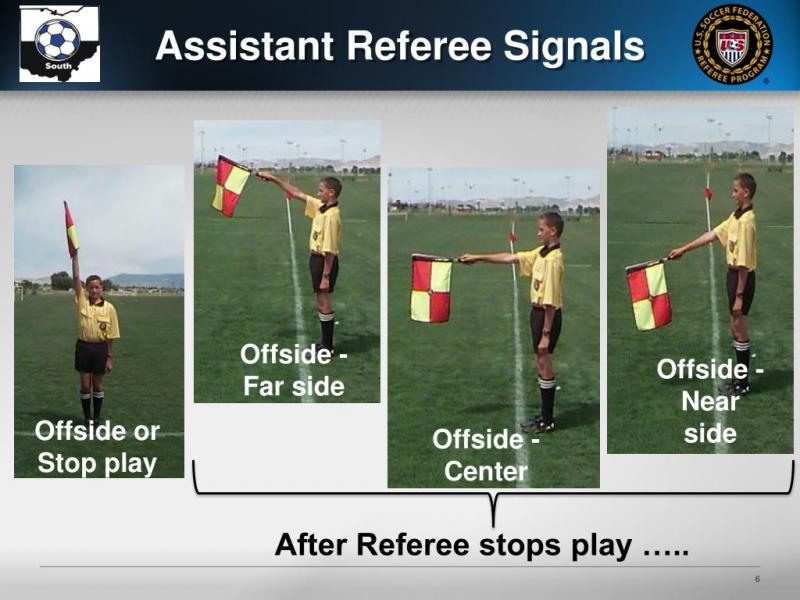
Even if you made the right call, failing to explain your rationale will fuel further dissent. Quickly communicate:
- The specific rule or violation you observed
- Relevant positioning, sightline, or game factors
- Any options you considered and why you made that decision
Succinctly state the facts. Don’t ramble or overexplain simple calls. Confidence inspires trust.
Listening actively without getting defensive
Let irate coaches briefly vent, resist the urge to interrupt. Nod occasionally to show you’re listening. Once they finish, respond:
- Briefly restate their viewpoint to confirm you understood
- Thank them for sharing their perspective
- Calmly re-explain your decision and rationale
Active listening shows respect, builds understanding, and defuses emotions. Don’t get defensive – you can both disagree on the call without escalating tensions.
Using empathy when responding
Empathize with a coach or player’s frustration while firmly upholding your call. Comments like:
- “I know how much effort goes into preparing for these rivalry games”
- “The pace out there is intense – I know tempers can flare”
Show you understand their reaction without condoning poor sportsmanship. Build rapport and turn a negative exchange into a learning opportunity.
Avoiding sarcasm or condescension

Never belittle or talk down to an upset coach/player. Arrogance destroys your credibility. Even if their behavior seems over-the-top, remain patient and professional. Consistently take the high road.
Using warnings before stricter enforcement
For minor dissent incidents, issue warnings before penalties:
- “Coach, I’m letting you know I heard that comment – no more of that.”
- “Let’s keep this discussion about the calls. Don’t make it personal.”
Clarify explicit expectations for continued respectful behavior. Follow through consistently if warnings are ignored.
Knowing when discussion is unproductive
If a coach re-litigates call after call without accepting explanations, acknowledge the disagreement but disengage:
- “Coach, it’s clear we don’t see eye-to-eye on some of these. Let’s move forward.”
- “I believe I’ve explained my perspective fully. We should get back to the game.”
Don’t waste energy debating unreceptive people. Redirect discussion to present/future game situations.
Using humor carefully to lighten mood
A well-placed joke can sometimes diffuse tension, but tread very carefully. Gently poke fun at yourself, not the other person. Laugh with, not at. Self-deprecation shows you don’t take yourself too seriously.
Ejecting repeat, aggressive offenders
If you’ve issued warnings and a coach/player continues personal attacks, obscenities, or aggressive dissent, eject them:
- Issue clear, calm directive to leave the field/bench area
- Don’t debate decision, but explain specific behavior warranting ejection
- Inform the other team’s coach of the ejection reason
Ejections demonstrate serious consequences for egregious conduct. Follow league reporting procedures afterward.
By staying cool under fire, clearly communicating, and showing empathy, you can turn contentious interactions into learning moments. Don’t escalate – be the steady guidance steering all participants back to respectful competition. Your leadership sets the tone.
Here is a 1000+ word article on getting lacrosse referee assignments and experience:
Getting lacrosse referee assignments and experience

Eager to get started as a lacrosse referee but not sure where to begin? Opportunities to gain that critical first game experience may seem elusive initially. However, with hustle and persistence, you can break in and start building your officiating resume. Let’s explore proven strategies for landing those crucial early assignments.
Refereeing lacrosse requires on-field experience – you simply can’t excel by just studying rules and watching from the stands. Those initial games will test your skills and build confidence. Take control of your development by actively pursuing any and all opportunities that come your way.
Getting certified
The first step is getting certified by a local lacrosse officials organization. Certification demonstrates your competence and that you’ve passed required exams. Organizations like local US Lacrosse chapters offer multi-week certification clinics leading up to each season. Sign up early, as slots fill up fast with both rookie and veteran officials.
Introducing yourself
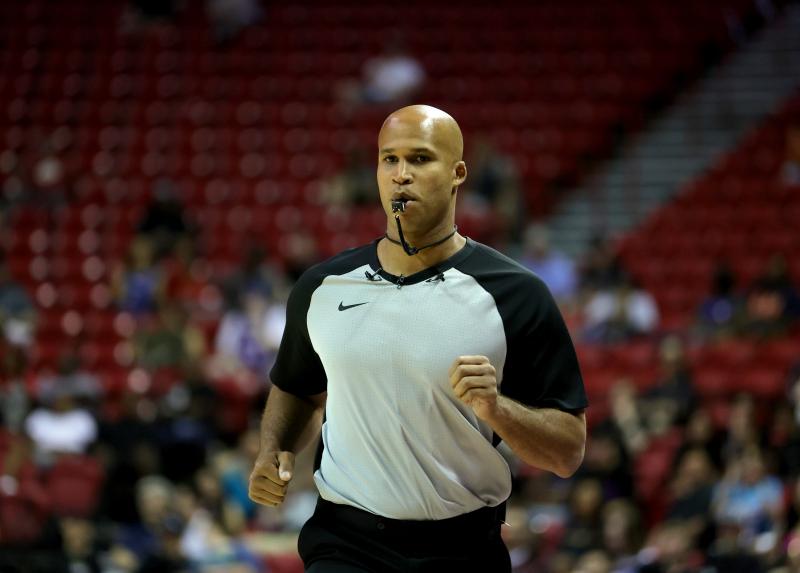
Don’t just wait for assignments – introduce yourself to area youth league coordinators and high school athletic directors. Market your enthusiasm and availability directly. Call or email:
- Your name, contact information, and certification status
- Relevant playing/coaching experience
- Your commitment to learning and professionalism
- Offer to provide your schedule and coordinate assignments
Make a great first impression – your energy and initiative will be remembered.
Being fully available
Especially when starting out, your availability is a major selling point. Clearly communicate:
- You can work any game on any day.
- You have no schedule restrictions or blackout dates.
- You’re willing to travel anywhere within reason.
- You’ll gladly take last-minute fill-in assignments.
Open availability and eagerness to step in are hugely appreciated. Prioritize games over other commitments.
Working youth leagues
Don’t overlook youth leagues – they offer valuable experience:
- Games have fewer officials, so more central role.
- Focus is on fun and learning – less contentious.
- You’ll improve mechanics for transitioning up/down field.
- Opportunities to connect with senior league assignors.
Youth games let you sharpen skills under lower pressure. Make a great impression on assignors!
Volunteering at tournaments
Local summer tournaments often need officials. Volunteer to get face time with assignors. Ask:
- If they need volunteers for minor tournament games/scrimmages.
- To assist veteran officials as a fourth man during major tournament games.
- About observing games to learn from senior referees.
Getting assigned to top tournaments takes years – use them instead to learn, network, and market yourself.
Joining local referees associations
Don’t just get certified – actively participate in local lacrosse refs chapters and organizations. Attend meetings and get to know assignors. Ask:
- To mentor with experienced referees.
- For evaluations and feedback to improve.
- About opportunities to get involved further.
These groups will open doors, but you must engage. Make refereeing a social activity too.
Build skills and confidence through real in-game experience. Proactively seek out assignments any way you can. Referee anything, anytime, anywhere. Stay persistent yet patient – your hard work will pay off with the games and tests that forge excellence. You’ve got this!
Joining lacrosse referee associations and groups

Beyond just getting certified, actively engaging with referee associations and groups is crucial for accelerating your development as a lacrosse official. These organizations provide training, mentoring, game assignments, and camaraderie with fellow referees. Let’s explore the benefits of joining local and national lacrosse ref groups.
Don’t try to go it alone – take advantage of the hard-won wisdom that referee organizations offer. Learning directly from experienced mentors will fast-track your progress much more than studying rules in isolation. And the contacts made will lead to that all important game experience.
Local officials chapters
Getting certified is just the first step. Ongoing education and training with your local US Lacrosse chapter or officials group will sharpen your skills long-term. Benefits include:
- Rules clinics, training videos, and test prep
- Game evaluations and new referee mentoring
- Fitness guidance and off-season positional workout plans
- Game assignment coordination based on experience level
Lean heavily on your local organization early on. Soak up every resource you can.
Joining referee social media groups

Beyond in-person meetings, connect with fellow officials online:
- Join lacrosse referee Facebook groups to participate in rules discussions.
- Follow top officials on Twitter for game insights.
- Read referee forums seeking advice on handling difficult game situations.
- Watch analysis videos that breakdown mechanics and calls.
The virtual community provides camaraderie, support, and an outside perspective on your development.
National organizations
Look beyond your local group and join national associations like:
- National Intercollegiate Women’s Lacrosse Officials Association (NIWLOA)
- National Intercollegiate Lacrosse Officials Association (NILOA)
- National Federation of State High School Associations (NFHS)
These provide rules resources, clinics, mentors, and set officiating standards across regions. Aim to get involved at national level over time.
Attending annual meetings and conventions
Mark your calendar for national lacrosse refereeing conventions like:
- US Lacrosse National Convention
- IWLCA Annual Meeting
- NILOA Annual Meeting
You’ll learn new techniques, get inspired by award-winning referees, and make connections. Strive to present at or volunteer for these events.
Seeking leadership roles
As you gain experience, seek out leadership roles in referee associations like:
- Committee positions
- New official mentoring
- Organizing clinics and meetings
- Running social media groups
Give back to the referee community that guided your development. Lead by example for the next generation.
By fully engaging with the many referee associations and groups, you’ll get connected to a community passionate about upholding the integrity of the game. Let experienced mentors guide you as you find your own path to excellence. Seek to belong, to learn, and ultimately to lead.
Advancing your lacrosse referee career over time
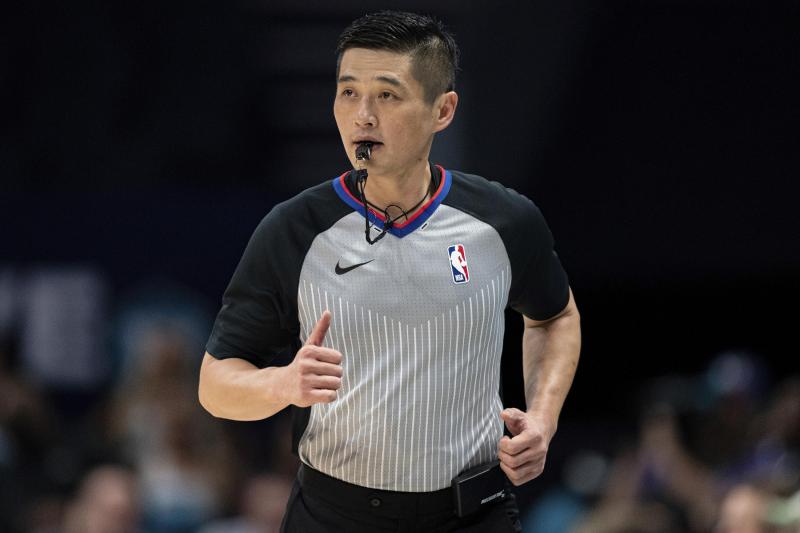
Congratulations, you’ve pushed through those grueling first years and established yourself as a capable lacrosse referee. But the journey doesn’t end here – advancement in officiating is a lifelong process. Let’s explore tips for continuing to improve your skills, leadership, and professional stature year after year.
The best referees never rest on their laurels. Complacency leads to mistakes and stagnation. Look at each game and season as an opportunity to reach new heights through tireless perfection of craft and service to the sport.
Seeking advanced certifications
Build credibility by pursuing advanced referee certifications like:
- NIWLOA Advanced Official status
- USL Trainer Assessor certification
- National Federation of State High School Associations licensure
Elite tournaments require certain high-level certs. Go above and beyond minimum requirements.
Requesting observer feedback
Proactively request detailed game evaluations from observers:
- Ask for candid, even critical, feedback.
- Focus on improving one or two skills each game.
- Compare perspectives of different observers.
- Implement feedback immediately at your next game.
Observers identify referee blindspots. Feedback is the breakfast of champions.
Studying under master referees
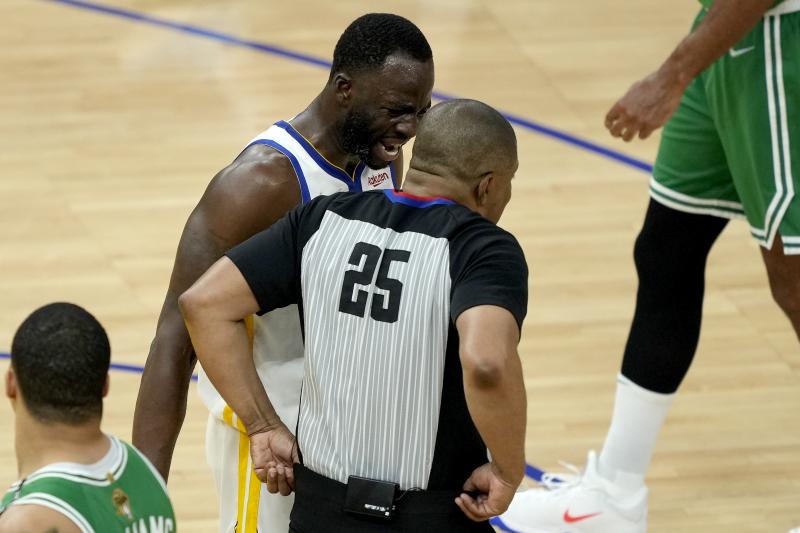
Seek to learn from the absolute best in the sport:
- Request to work tournaments with eminent referees.
- Ask questions on their philosophy and training regimen.
- Debrief techniques for focus, positioning, and game feel.
- Soak up every pearl of wisdom.
Standing on the shoulders of giants will elevate your performance.
Publishing articles and books
Once established, look to publish your insights:
- Write training articles for refereeing magazines and blogs.
- Self-publish an e-book or blog on officiating excellence.
- Propose a lacrosse refereeing book to publishers.
Putting your leadership and insights down on paper cements your legacy in the sport.
Presenting at major conferences
With credibility built up over years, propose presentations:
- NIWLOA and US Lacrosse annual meetings.
- NFHS and state coaches association conferences.
- College lacrosse coaches conventions.
Position yourself as a thought leader by sharing guidance honed over decades of officiating.
Mentoring up-and-coming officials
Once a seasoned veteran, take promising young referees under your wing:
- Give back by providing the patient guidance you once received.
- Instill perspective, integrity, and a passion for service.
- Share materials and drills that accelerated your own journey.
Guiding others to greatness ensures your values live on.
At each stage, seek to learn, share, and build belief in the critical role of referees. Advancement comes not through glory or ego, but dedication to the endless refinement of craft. Stay hungry and humble. Your life’s work makes the sport possible.
Enjoying the rewards and benefits of being a lacrosse referee
Officiating lacrosse games involves long hours, angry coaches, and non-stop sprinting. But alongside the grind, there are many intangible rewards that come from donning the stripes. Let’s explore the fulfilling benefits you can look forward to by pursuing this challenging yet immensely satisfying role.
Beyond the obvious benefit of getting paid to be physically active outdoors, refereeing lacrosse profoundly enriches lives by strengthening character, developing leadership, and serving community. The relationships built and lessons learned last a lifetime.
Character building
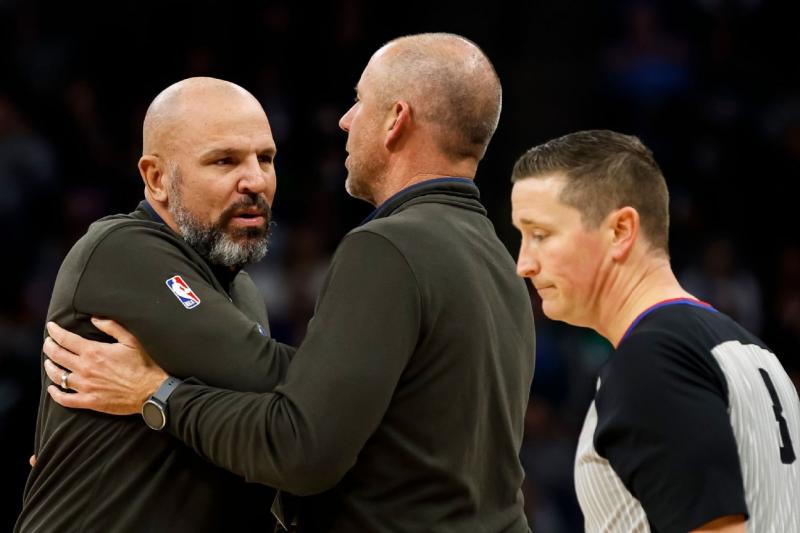
Officiating builds unshakeable integrity and mental toughness. Skills developed include:
- Making correct calls under intense pressure
- Taking responsibility for split-second decisions
- Standing firm when fiercely questioned
- Admitting mistakes with accountability
The journey reveals your true character – embrace the opportunity for self-discovery.
Leadership development
Top referees lead by example on and off the field:
- Projecting confidence in the face of dissent
- Communicating calmly and concisely in tense situations
- Commanding respect without demanding it
- Guiding players’ development through positive reinforcement
You’ll gain a lifetime of leadership skills applicable to any pursuit.
Rules expertise
Mastering the rule book inside and out is profoundly rewarding:
- Achieving the highest levels of certification
- Teaching rules clinics to fellow officials
- Debating subtle interpretations with passion
Strive to become a true student of the game.
Staying physically fit
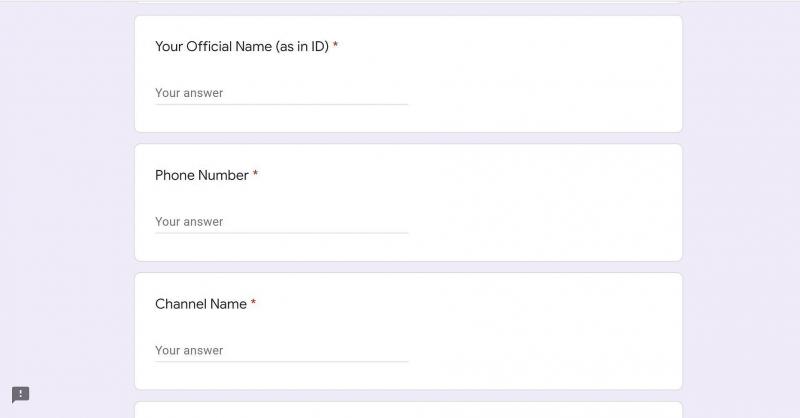
Top shape is a job requirement for referees:
- Hours of training to meet fitness standards
- Pushing your physical limits into your 40s, 50s and beyond
- Feeling energy, agility and mental sharpness
Officiating keeps you healthy, active and young at heart.
Camaraderie and community
A lifetime of cherished friendships arise through the referee community:
- Pre-game rituals and stories from decades on the field
- Post-game debriefs over snacks and drinks
- Alumni coming together annually to reminisce
The other officials on the journey become family.
Officiating lacrosse helps mold promising young student-athletes through service to the sport you love. And along the way you’ll reap profound personal growth impossible to achieve elsewhere. Now stop reading and go make the next call.